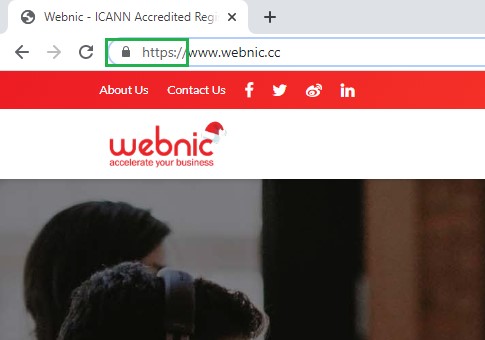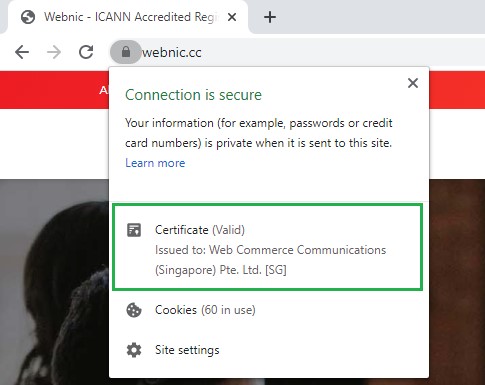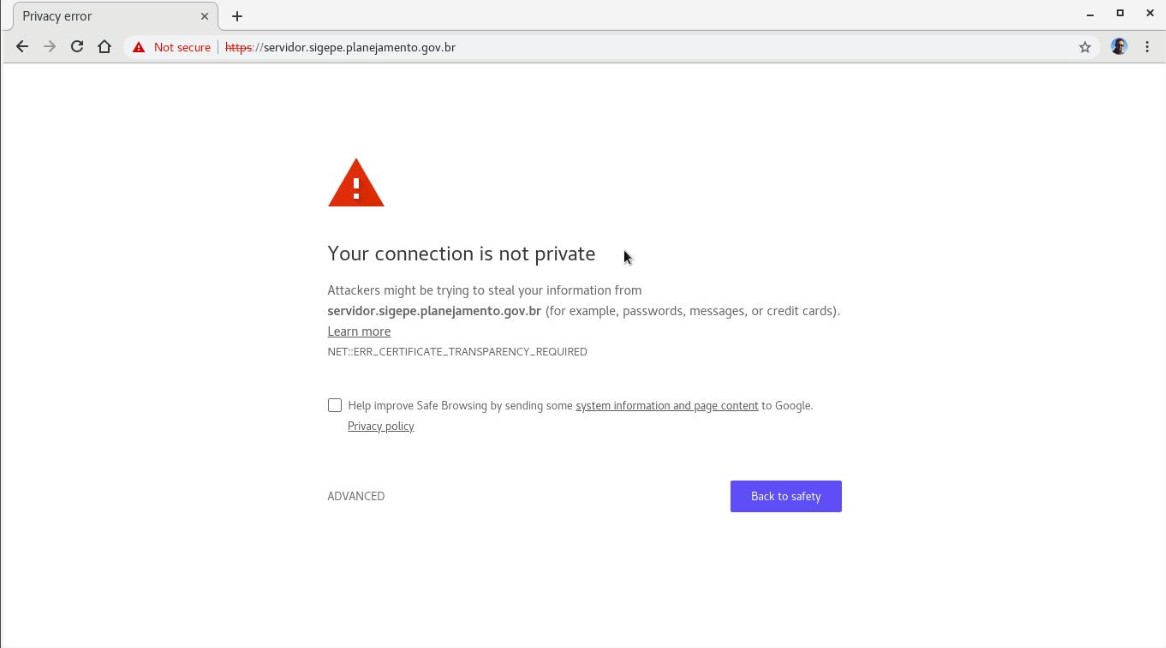SSL certificate is an important safety requirement for any websites. It is an essential part of website security and plays a crucial role in protecting data transfer between a browser and the website server. Many Internet users are now more aware than ever of website security, due to so many website safety issues being reported by the mass media, especially data breach cases. SSL certificate has become a fundamental aspect of owning and running a website.
What is an SSL certificate?
SSL certificate is a digital certificate technology that provides authentication and encrypts data that is transferred from a website to a server, or vice versa. Applying for an SSL certificate requires certain procedures that authenticate the owner of the website. A website secured with an SSL certificate can be seen by indicators on the website browser. The indicators include a small padlock before the website URL, the “https” in the URL and also the secure message displayed when clicking on the padlock, as shown below:


The presence of an SSL certificate on a website provides users with an assurance that the website owners are verified, and the data transit process is encrypted. Data encryption protects the data from being read or intercepted by any third parties, and only the intended sender and receiver will be able to decrypt the data. SSL certificate facilitates and safeguards communication message so that it cannot be read or stolen by the wrong parties.
How does an SSL certificate work?
SSL certificate is an encryption technology that uses two concepts, asymmetric cryptography and symmetric cryptography. The process of establishing a secured connection over SSL will require two steps, the SSL handshake and the actual data transfer.
The first step is called an SSL handshake, which utilises the asymmetric cryptography concept. Under this concept, a mathematically-related key pair is created, which consists of a Public Key and a Private Key. The Public Key is shared with anyone interested to establish a communication with a server, while the Private Key is kept secret. A browser initiates the connection and receives the Public Key from the server. It then verifies the Public Key against data from the issuing Certificate Authority (CA) and ensures the Public Key is valid. This step authenticates the server as legitimate and will establish a secured connection for actual data transfer. If the Public Key is invalid, then the connection will fail, and data transfer will not happen. The first step, SSL handshake, is only considered complete if the Public Key has been validated.
In the second step, the actual data transfer will start by utilising the second concept, symmetric cryptography. Under this concept, a session key will be generated, which encrypts and decrypts data. Both the browser and the website server will share the key, which is only known to them. Any data that is transferred will be encrypted by the session key and can only be decrypted with the same key. This ensures a secured and safe process of transmitting data.
Websites with SSL certificates will need to go through these two steps to establish a secured connection for data transfer. All these extra steps will enhance security and safeguard users’ data so that the data they submit are protected from interception by third-party.
The importance of SSL certificate
- SSL certificate increases conversion by building customers’ trust and confidence.
SSL certificate increases the trust of customers, as it indicates that a website is safe for users. Customers are now more aware of website security, and SSL certificate is one of the most important signs they look for when visiting a website. They will be more confident, knowing that their data is properly encrypted and secured, thus increasing their willingness to convert as a paying customer. - SSL certificate authenticates the identity of website owners.
Applying for an SSL certificate involves a process which requires authenticating the identity of the website owner. The Certificate Authority (CA) which issues the SSL certificate will request a website owner to perform specific actions, and in the process will verify him/her as a legitimate owner. Websites with SSL certificate assures that a website owner has been verified and therefore is much safer than a website without an SSL certificate. - SSL certificate establishes a secured connection for safety and integrity of data transfer.
SSL certificate establishes a secured connection to protect data transfer. Any data sent will be encrypted and cannot be easily intercepted or viewed by anyone. In order to view the data, only the right corresponding key can decrypt the data, where only the intended receiver will have. This step ensures the safety and integrity of the data that is transferred. - HTTPS increases security levels to pass the security check of major Internet browsers.
Many modern Internet browsers now have security features which scan a website to check if it is safe for users. SSL certificate ensures that there are no security warning messages which might cause users to leave a website. The best example is when Google made SSL certificates mandatory for all websites in 2018. If a website has no SSL certificate, Google Chrome browser will display a security error message as shown below, and many users will leave due to the message. SSL certificates ensure this does not happen.

- Satisfy PCI DSS security compliance for online payments and transactions.
If business owners are looking to implement online payments and transactions, they will need to satisfy PCI DSS security standards. PCI DSS stands for Payment Card Industry Data Security Standard, and one of the requirements is to have SSL certificates installed on their website. SSL certificates make the process of implementing online payments and transactions faster and easier.
The three main categories of SSL certificate
- Domain Validation (DV)
DV certificate only requires authentication of domain ownership, and the validation level is the lowest. It is suitable for websites which need fast issuance, but it is less secure because anyone can get a DV certificate issued. - Organisation Validation (OV)
OV certificate requires validating the domain ownership, as well as the applicant’s organisation information to make sure it is an actual organisation. The validation level is higher than DV, as CAs take additional steps to verify organisation against public government information website or an approved third-party website before issuing OV certificates. - Extended Validation (EV)
EV certificate has the highest trust level. Certificate Authority (CA) takes complete steps to perform full validation of the applicant, including the validation steps in DV and OV certificates. CA will also contact the applicant through phone and verify the applicant is a legitimate business.
Not sure which category of SSL certificates to choose? Check out our guide here.
Conclusion
SSL certificates are now extremely important for any websites. It is now one of the most critical safety standards for modern websites. It builds trust and confidence of customers, authenticates website ownership, provides a secured connection for data transfer, increases security levels to meet modern Internet browsers’ safety requirements, as well as satisfy PCI DSS security compliance for online transactions. All these will provide a substantial advantage for any businesses that have an online presence in the long run.
WebNIC offers a wide range of SSL certificates that fit any businesses, from small and medium enterprises to big multinational corporations. It is important to encourage your customers to buy SSL certificates as they benefit their businesses in the long run. If you are unsure how to sell SSL certificates to your customers, contact us at inquiry@webnic.cc and let us assist you. We will help you to set up and guide you in selling SSL certificates.
About WebNIC
WebNIC is an accredited registrar for ICANN, and various countries including Asia, Europe, America, Australasia, and Africa. With offices in Singapore, Malaysia, Korea, Indonesia and Taiwan, we serve 4,500+ active resellers over 70 countries. To join us and become a reseller, live chat with us or email us at inquiry@webnic.cc.

